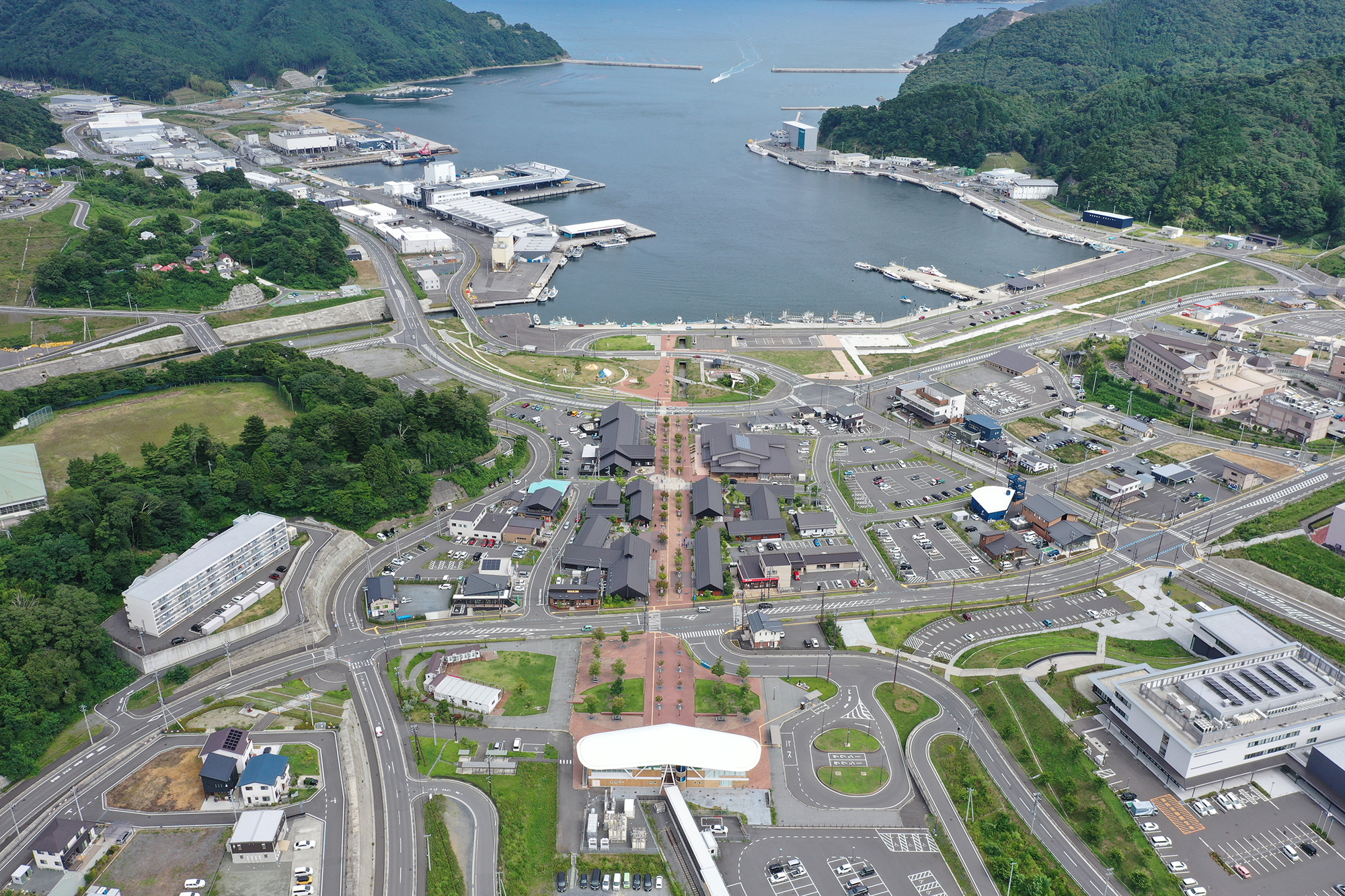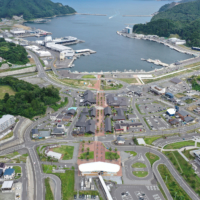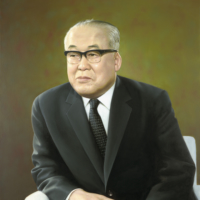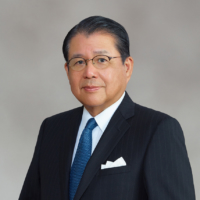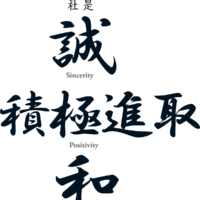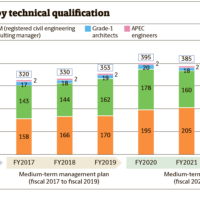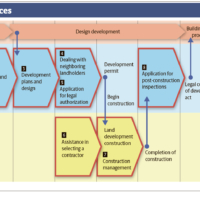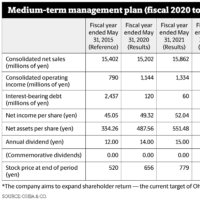“Our company is 100 years old, but our corporate philosophy of ‘Sincerity, Positivity, Harmony’ can be traced back some 400 years as a precept of a samurai family,” Ohba & Co. President Shigeru Tsujimoto said in a recent interview with The Japan Times.
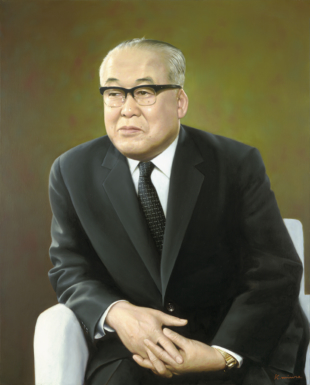
Ohba, a consulting and engineering company in Tokyo with branches from Tohoku to Okinawa, specializes in urban development and civil engineering. It was founded in 1922 by Munenori Ohba, who was born in 1897 as a son and heir of a retainer of the Kanazawa Domain, which straddled today’s Ishikawa and Toyama prefectures. After working as a civil engineer for the Ministry of Railways, now the Ministry of Land, Infrastructure, Transport and Tourism, he established one of the first private surveying firms in Japan with the aim of creating a new business model for private infrastructure and urban development firms at a time when such projects were primarily the domain of the public sector.
Tsujimoto recalled coming across the motto of the Rothschild family when he was reading a book. “It was ‘Concordia, Integritas, Industria’ (‘Harmony, Sincerity, Industry’) and I was surprised at its coincidental similarity with our motto,” he said, pointing out that there is no East or West, or present or past, in how human beings should behave to gain the trust of others.
In touch with today’s world
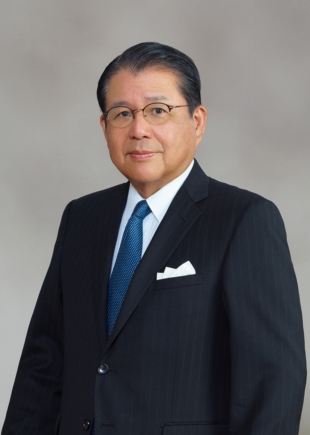
By ensuring the company’s philosophy permeated its over 500 employees (80% of whom are civil engineers), and maintaining client trust, Ohba has been able to lead the industry for as long as a century, a span that has seen plenty of turmoil.
“We feel privileged to be acknowledged as a time-honored company, but there are actually more than 74,000 100-year-old companies globally, and around half of them are Japanese companies,” Tsujimoto said. “I think these companies have survived because they, like ourselves, have had an unswerving philosophy at their core and have been faithful to it. We should be proud of this mentality,” he said, expressing confidence such a quality would also be appreciated by foreign companies and investors seeking partners in Japan.
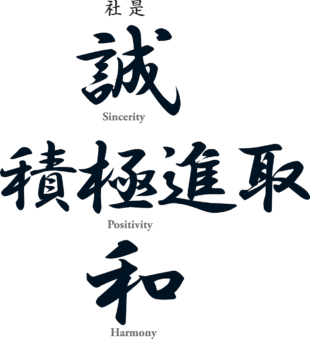
Ohba is not only well-established, it is committed to continuous growth. For the past 11 years, Ohba has posted year-on-year operating profits by improving its technological capabilities and cost control. It has also been promoting the acquisition of technical qualifications among its staff, from professional engineers and registered civil engineering consulting managers to grade-1 architects and engineers meeting standards set for member countries of the Asia-Pacific Economic Cooperation alliance.
The goal is to steadily strengthen its foundation by increasing the number of personnel who have qualifications, which has grown from 353 at the start of the Medium-Term Management Plan four years ago to 500 this fiscal year. The key to improving cost control lies in promoting information-related investment, which was further strengthened in response to the COVID-19 pandemic, and reducing fixed costs via enhanced interbranch collaboration, including work-sharing.
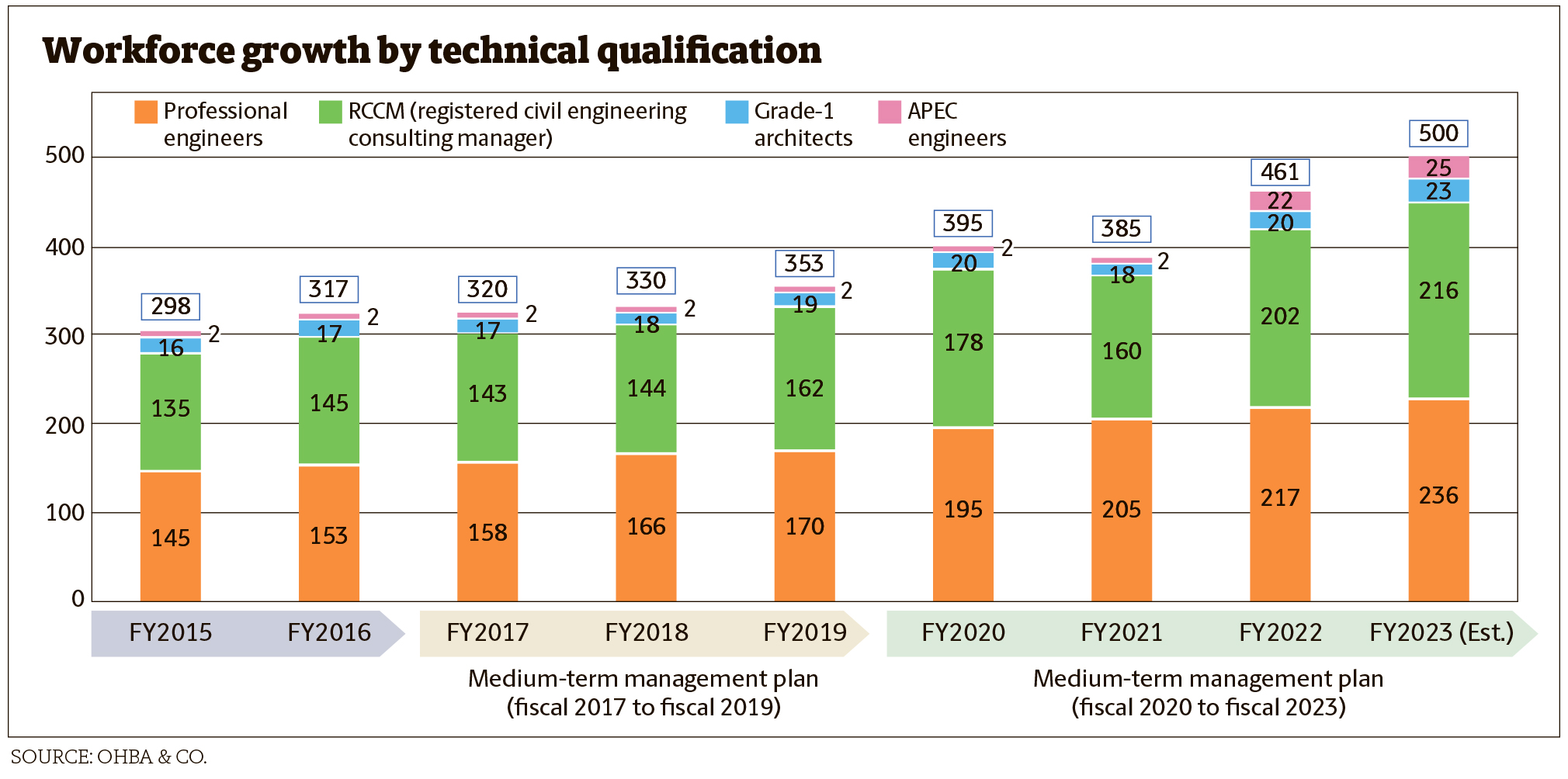
The company is also advanced in terms of its compliance with the strictest and most up-to-date corporate governance requirements needed to list on the Tokyo Stock Exchange’s new Prime Market. The Prime Market sets tighter listing criteria, including corporate disclosures in English and climate-related disclosures, that encourage the nation’s top companies to always be prepared and available to seize more opportunities to engage with both international and domestic investors.
Now how does a company with a global vision that has drawn insights from the past hundred years of turbulence in Japan view the country today? Given the near quadrupling of the Japanese manufacturing industry’s overseas production ratio to 23.6% from 1991 to 2020, Tsujimoto said, “Those were the times when the value of the yen was rising and companies that considered it impossible to continue their production in Japan started to shift to overseas production to maintain the level of profitability.”
However, the yen’s continued depreciation and the nation’s long-standing deflationary trend, which seems to be shrugging off recent price hikes, may change the situation for both Japanese manufacturing and foreign companies planning to establish manufacturing bases overseas. “Manufacturing in Japan may become a more reasonable and efficient choice than manufacturing abroad. It is starting to make more economic sense for Japanese companies that moved their production bases to other countries to come back and for foreign companies to look into the possibility of establishing their production bases in Japan,” Tsujimoto said.
“If we only look at the labor costs, there are certainly countries with even lower labor costs than Japan, but there are many other factors to take into consideration,” he said, emphasizing the benefit of Japan’s geopolitical, political and social stability, the availability of generally competent human resources, and the scarcity of labor disputes. Tsujimoto believes that all of these factors, whether good or bad, can offer sound grounds for making reasonable business judgments and investment decisions.
Many factors to consider
When preparing to enter Japan, the problem for many foreign enterprises often lies in where and how to start, and this is exactly where Ohba can help.
To acquire and utilize land, one needs to deal with the potential need for land readjustment, extensive documentation and a mass of information that is only available in Japanese, as well as national and local compliance issues, permits and certificates, on top of negotiations with authorities, landholders and other parties. With its engineering technology and know-how, Ohba is equipped with all of these tools, including connections with various stakeholders and the legal knowledge needed to overcome these hurdles based on the vast experience it has accumulated through countless projects across the nation.
“Let’s say that there is a foreign company that wants to start operating its new plant in Japan in three years’ time, but has not even decided where and is in need of insightful advice. We can start helping from there,” Tsujimoto said. Places along major highways would be ideal for logistics companies, while factories that plan to hire a lot of workers should be situated in close proximity to them. Various risk factors, including disaster vulnerability, must be assessed as well.
“It is our job to help companies and investors to evaluate risks concerning the land that they intend to acquire and maximize the potential of,” Tsujimoto said, noting that it must then add even more value to the land as experienced consultants and engineers.
One of the examples of Ohba working with foreign capital is the planning and development of massive logistics warehouses for Japanese units of global enterprises. There are several of them across the nation, and all provide easy access to the main cities in the regions they serve via major highways — one of the most important aspects of planning and building logistics warehouses in Japan.
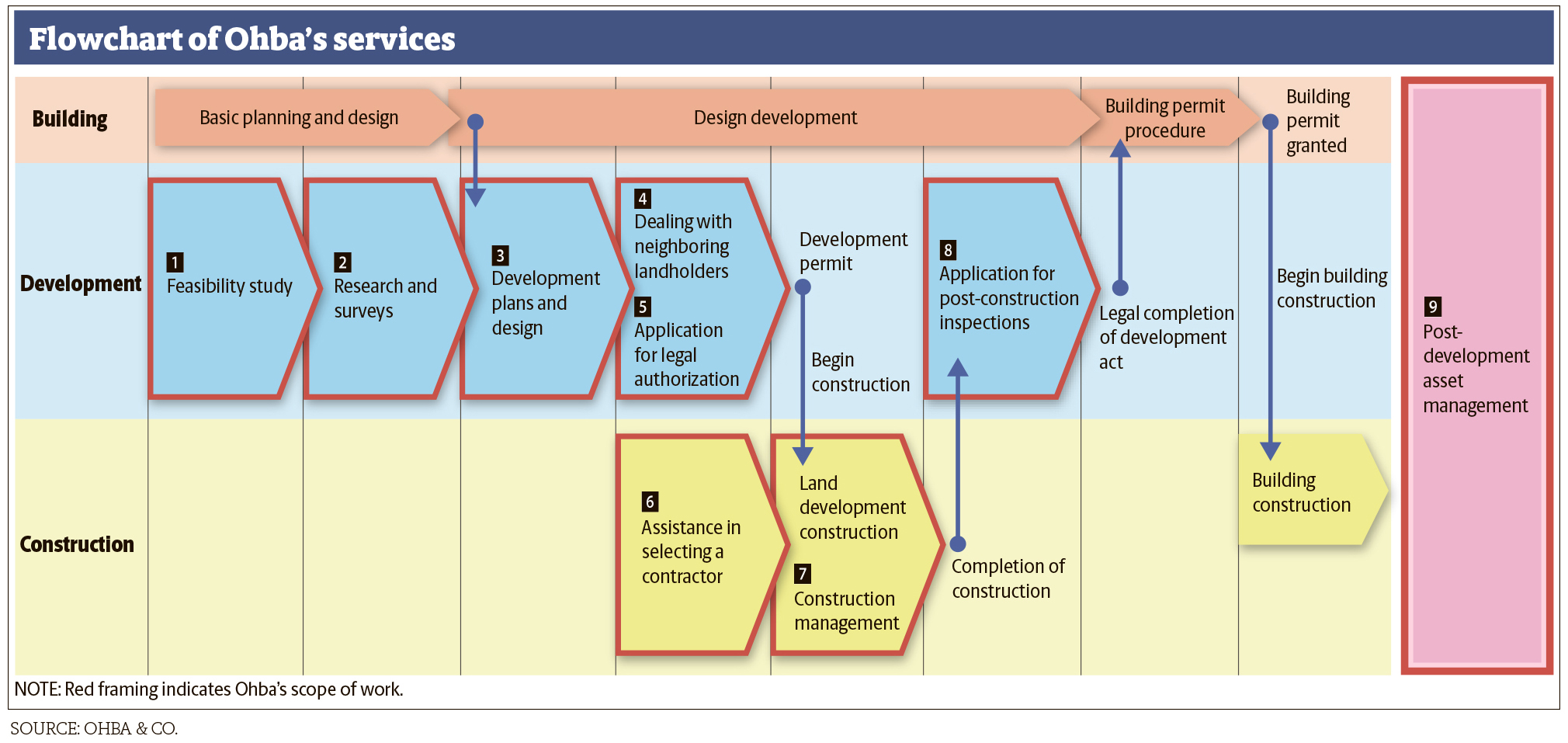
Wide range of projects
Ohba has also developed several large solar power plants with foreign investors in recent years, which also obviously requires vast tracts of land, but comes with requirements and a set of regulations that are completely different from those used by logistics warehouses.
Another prominent achievement is the more than 100 golf courses in Japan that Ohba has developed with domestic and international designers, including Greg Norman Golf Course Design, which has developed over 100 courses in 34 countries.
“Such renowned designers came up with beautiful designs, but some parts of the plans they laid out were not aligned with regulations in Japan. It was our job to adjust, advise, negotiate and explain in order to make those plans feasible,” Tsujimoto said, predicting that more manufacturing companies will consider Japan as an option for hosting their bases. He noted that manufacturers require safe, secure and stable locations to work from — something the world has become increasingly aware of amid today’s political turbulence, including the war in Ukraine and China’s increasingly provocative relationship with Taiwan.
Tsujimoto also said: “Solid infrastructure is another thing that is indispensable to the manufacturing sector. But it is not something that can be created overnight. Japan has a great advantage in that sense because it has the accumulation of strong infrastructure.” In fact, Ohba is one of the major players in Japan that contributed to the development of its infrastructure, especially after the war. Now this infrastructure is an asset to both domestic and international businesses.
Disaster mitigation
Disaster prevention and mitigation comes in one package with any kind of infrastructure in Japan, not only because it is an historically earthquake-prone country, but also because it is aiming to achieve higher degrees of tolerance in line with the increase in natural disasters brought about by climate change.
Ohba participated in restoration projects after the 2011 Great East Japan Earthquake. These include the rebuilding of the disaster-hit area in front of Onagawa Station in Miyagi Prefecture. The company received a Good Design Award in 2018 for this work. “We have seen disaster victims celebrate the revival of their towns, which gives us great satisfaction and points to our pride as engineers,” Tsujimoto said.
“There is nothing showy about the work we do. We are just making steady efforts with sincerity based on our firm commitment to our corporate philosophy,” he said with the conviction that this attitude eventually leads to trust. “This trust is something that is not inserted into a company’s balance sheet, but it is definitely an important intangible asset that grows a company and makes its business sustainable,” he explained.
Given the changes in the global situation and Japan’s economy, Ohba’s future clients may change as it deepens international collaboration, but its way of doing business will remain the same.
“We will continue developing our human resources and strengthening our expertise with pride in our achievements. Civil engineering contributes to the development and welfare of human beings. As long as there is the Earth, there is civil engineering,” Tsujimoto said.
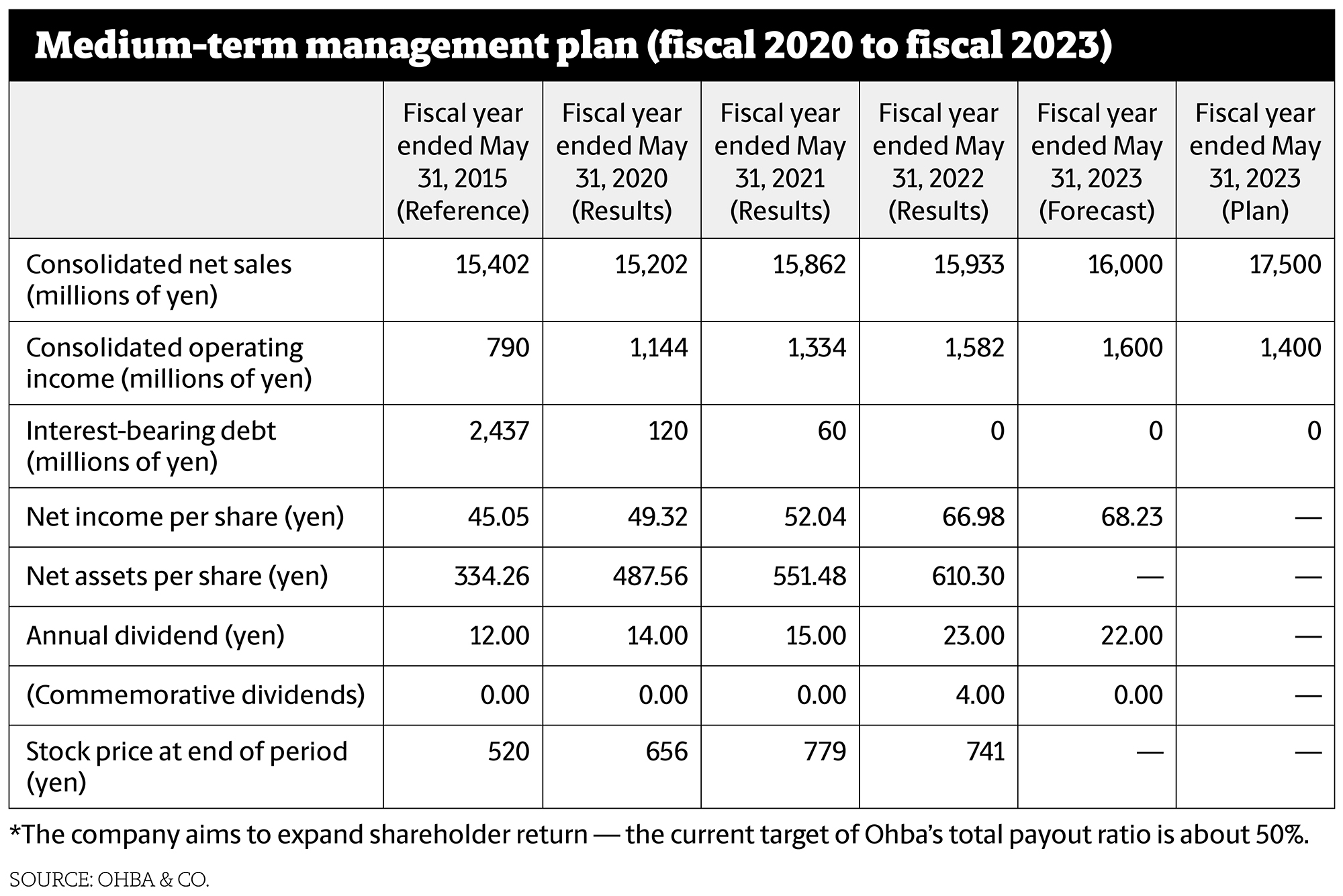
For more information, visit:
http://www.k-ohba.co.jp/global/english/
Download the PDF of this special



